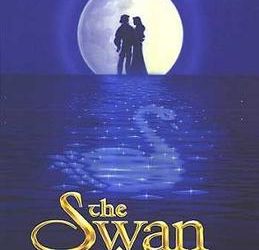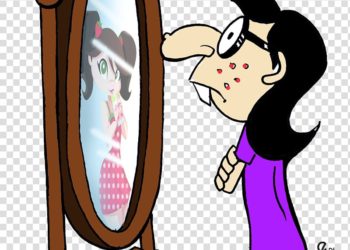Synopsis of Soul (2020)
Soul (2020) follows the musical life of Joe Gardner (Jamie Foxx), a middle school music teacher, pianist, and jazz aficionado. His love for music, particularly jazz, was ignited when his Dad took him to a concert as a boy. It was love at first chord. All his actions since then were geared towards getting his big break as a musician.
Joe finally gets the break he has been dreaming about when one of his former students, Curly Lemont-Baker hooks him up for a gig with saxophone sensation, Dorothea Williams (Angela Bassett). Unfortunately, things go south. Joe falls through a manhole in his excitement, is mortally wounded, and finds himself on the stairway to the Great Beyond.
Joe vehemently refuses to go into the light. In his frantic attempts to escape, Joe ends up in the Great Before. All attempts to go back into his earthly body through the earth portal in the Great Before prove abortive. In his many attempts to avoid going to the Great Beyond, Joe unintentionally finds himself mentoring 22 (Tina Fey), a little jaded soul that has no intention of living.

Things take a turn for the worse when the duo fall back to earth but in the wrong bodies. Like every man with a dream, Joe is obstinate and tries everything he possibly can to get back into his body and do his gig. In tirelessly running after his life, Joe unwittingly shows 22 that this living business wasn’t so bad after all. Walking a mile in Joe’s shoes and too-tight pants showed her that though flawed, life was filled with rich and fulfilling experiences that could only be appreciated when felt.
In the course of living, 22 finds her spark by accident. She’s thrown into a flurry because even though she has found her spark, she doesn’t know what it is. Joe on the other hand is mad as a hornet at the botched attempt to go back into his body. Careless words are flung between the two, Joe is finally able to go back thanks to 22’s earth pass while 22, convinced she is not worthy of living becomes a lost soul. In his third attempt at life, Joe learns a lesson that would forever change his outlook on life.
Analysis of Soul (2020)

While riddled with plot holes that are glossed over with humor and didactic messages, Pixar’s Soul (2020) carries a weighty message that everyone seeking direction and purpose in life needs to hear. From the heart-stirring music and the reality of chasing a dream that might never become reality to 22’s childish enjoyment of the common things in life, Soul (2020) made for a soulful viewing experience. Although the movie houses a wealth of themes and moral lessons, these themes stood out.
Themes
On Finding Your Life’s Purpose
What am I meant to do with my life?
This is the question that plagues us all from the moment we reach the age of reasoning. Just like a pen is destined for writing, we believe our lives have a purpose which we must find and fulfill. This “purpose” is usually translated in terms of career paths and is determined by our sparks. We spend a great deal of our life working towards this purpose, hoping that we would find it in time and fulfill it before we die.

Call it a case of hedonic adaptation or ingratitude but Joe didn’t feel the satisfaction he thought he would feel after his gig with Dorothea Williams. He had spent his entire life waiting for a break like this, and now that he had it, he felt empty. It felt like something was missing. He had felt more fulfilled performing for his little class than he had after this gig. This was meant to be his purpose. So why did he feel deflated?
One of the principal messages of the Soul (2020) is that the primary purpose of life is to live and be lived unapologetically. It’s not really about any perceived endpoint but about the journey itself. This kind of reminds me of the time I told my younger brother that cats lead a very monotonous and simplistic life. All they do is eat, sleep, poop, play, eat some more, sleep a lot more, rinse and repeat. He laughed. He said life was simple but humans always complicated it.
When 22 told Joe that her spark could be walking or sky watching, he told her those were just part of “regular old living” and not purposes- and therein lies the problem. A lot of us spend so much time pursuing “our purpose” that we forget to live. We become like those lost souls in the bleak part of “the zone.” The simple things like truly savoring a mouthful of food, watching the sun bleed out or nature change her colors become mundane as we run after this higher purpose that is supposedly more fulfilling than everything we already have.
The Concept of Flow

While trying to help Joe find Moonwind (Graham Norton), 22 takes Joe to a place called “the zone”, a place people go when they are so immersed in the task at hand that they become one with that task. The zone is a state of hyper-focus, a paradox where time seems to stand still and fly at the same time. This is essentially what flow is all about.
Flow is a state of internal congruency, a euphoric mental state where you are so in tune with an action it almost feels like you stepped out of your body. At that point, nothing exists but the action. Someone in flow finds the balance between action and inaction. It’s a bit as if your body knows what to do and is doing it without any help from you. For me, when I get into that state, it feels like the words are tumbling out of my fingers; like something is telling my fingers the words to write and I am just there observing. To key into this state, I have to just go into the action (writing) and stop trying to analyze or edit as I write. It’s just like Morpheus told Neo in the Matrix, “You have to let it all go. Fear, doubt, and disbelief. Free your mind.”

The concept of flow is beautifully captured when Athena, the main character in Paulo Coelho’s, “The Witch of Portobello” learns the life-changing powers of dance and calligraphy and how they both draw her closer to the divine. To get there, she frees her mind and becomes one with the music.

In Soul (2020), Joe enters the zone (the state of flow) many times. First, while trying to motivate the tone-deaf students and subsequently while trying to find 22 and convince her she was worthy of living. At that point, nothing mattered to Joe, not time, not his inability to catch a break, nor his students. The only thing that mattered was the music snaking out of his fingers and onto the piano keys. I think this idea of flow and its consuming nature segues in nicely to the next theme.
The Consuming Nature of Talent and Hobbies

Asides from our names, the first thing we usually introduce ourselves with are our professions. It is normal to be proud and satisfied with all we have become and achieved. However, we must remember that though they are important parts of our story, our talents are not the entirety of who we are.
Joe’s life is a hot mess.
From his pants that are two sizes too small down to his obsession with gigs and big breaks and his obstinacy to make room for anything else that wasn’t jazz, Joe’s life seemed empty and forlorn to me. Music consumed him and while that might seem poetic on paper, it makes for a very sad and lonely reality. As someone that has experienced the high that comes with being “in the zone”, I understand wanting to recapture that feeling time and time again and doing things that make that desire possible, however, that’s not living. There has to be a balance else one becomes like those souls lost in the dark part of the zone.

Life is too full of experiences to make your talent or hobbies the end-all of your interactions with people. In the movie, we can see (from Joe’s words to 22) that when Joe goes to the barber’s shop, he doesn’t interact with anyone. He just goes straight to Dez’s chair and they talk about jazz while he gets his hair cut. Joe believes Dez’s purpose is cutting hair. In all the years Dez (Donnell Rawlings) has been cutting his hair, Joe knows nothing about him asides from their shared love for jazz. He only discovers how Dez has to forgo his dream to become a veterinarian when 22 takes his body for a spin. While Joe is an amazing teacher and a killer pianist, he is not really a good friend or companion. The way I see it, he was just a flow away from joining those lost souls.
The Barter of Dreams
Be it taking up a job at a 7-Eleven when your true passion is acting or bussing tables to make ends meet, most of us have been at that stage in life where we had to trade or put our dreams on hold to survive. We see this with Joe who has to work as a middle school music teacher while pursuing gigs on the side and the barber, Dez giving up his dreams of becoming a veterinarian and settling for a job at the barber’s shop. This part of the movie is very critical as it shows that a.) Just like Dez, you can discover your spark while taking a detour from your dreams. b.) Just like Joe, putting your dreams on hold while holding down a 9–5 doesn’t mean you have to forget those dreams permanently.
The Lovable in Unlovable
There is something lovable even in the most unlovable of us all. It may not be something huge but it is always there- and sometimes, that little thing makes the greatest difference. When 22 takes Joe’s “meat suit” for a spin, we get to see New York City through her eyes. It was chaotic.
It was noisy, crowded and everyone’s fuse seemed to just be waiting for the smallest friction to go off. It was no wonder the poor soul didn’t want to live. When presented like that, living seemed just too riotous and unnecessarily stressful, man. However, when she really got into the whole “living” business, 22 found memorable and worthwhile things to love in that concrete jungle. The little things like the joy of walking, the calming feeling of being in Dez’s chair, the sugar high of the lollipop, the toasty sunlight, the beauty of nature, the rapturous feeling of eating a slice of pizza, and Mrs. Gardner mending a suit with a little spool were all it took to make this crazy business of living seem worthwhile to 22.

I also think this also extends to 22 as a person. At first, she seems like a cheeky, smug, little Miss know-it-all and is frankly a bit hard to like. Like hell, even Mother Theresa didn’t like her and that’s saying a lot. However, as the movie progresses she grows on you. You realize that beneath all that bravado and indifference, she worries she is not good enough for living, a vulnerability that makes her as human as those that are living or have lived.
Verdict
Strength of the Plot: 6.5
Plot Progression: 8.5
Character Development: 9.0
On a scale of 1 to 10, Soul (2020) is an 8 and an enjoyable watch that would leave your ribs hurting and give your mind something to ponder.
Originally published on Medium.
Like what you read? Check out Grief is Like a Pair of Slippers and Ilo Uwa and Reincarnation: Science Meets Igbo Philosophy








Comments 1